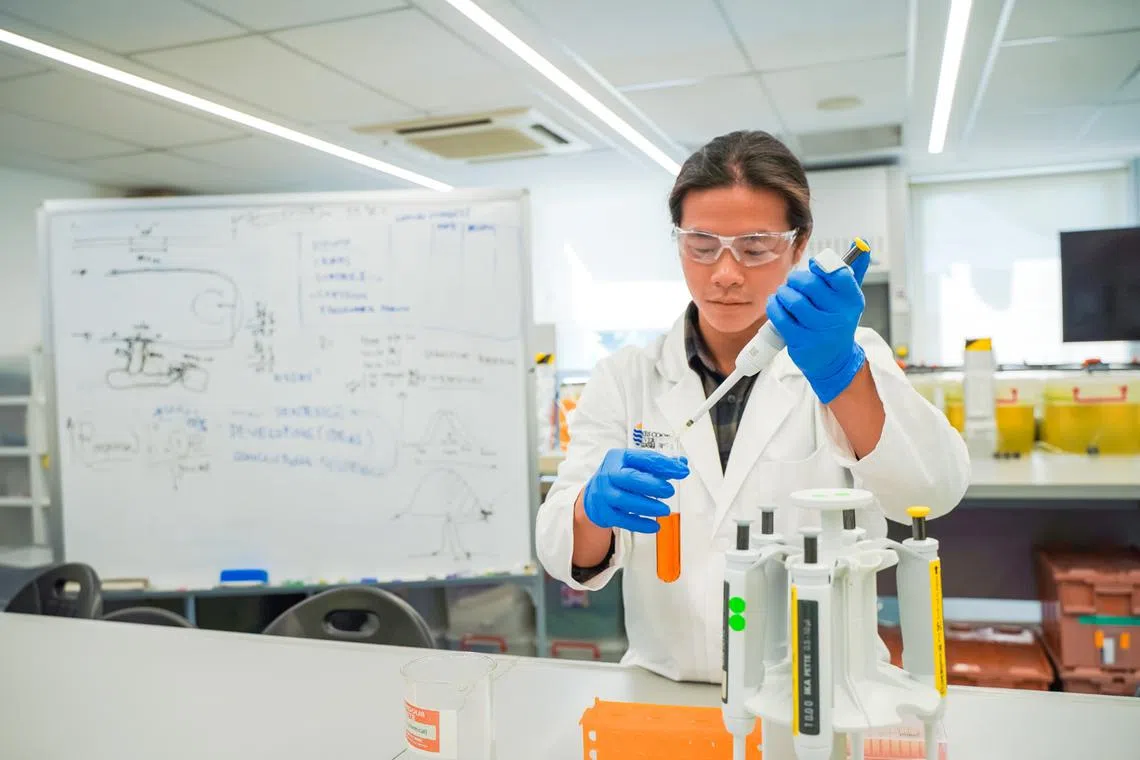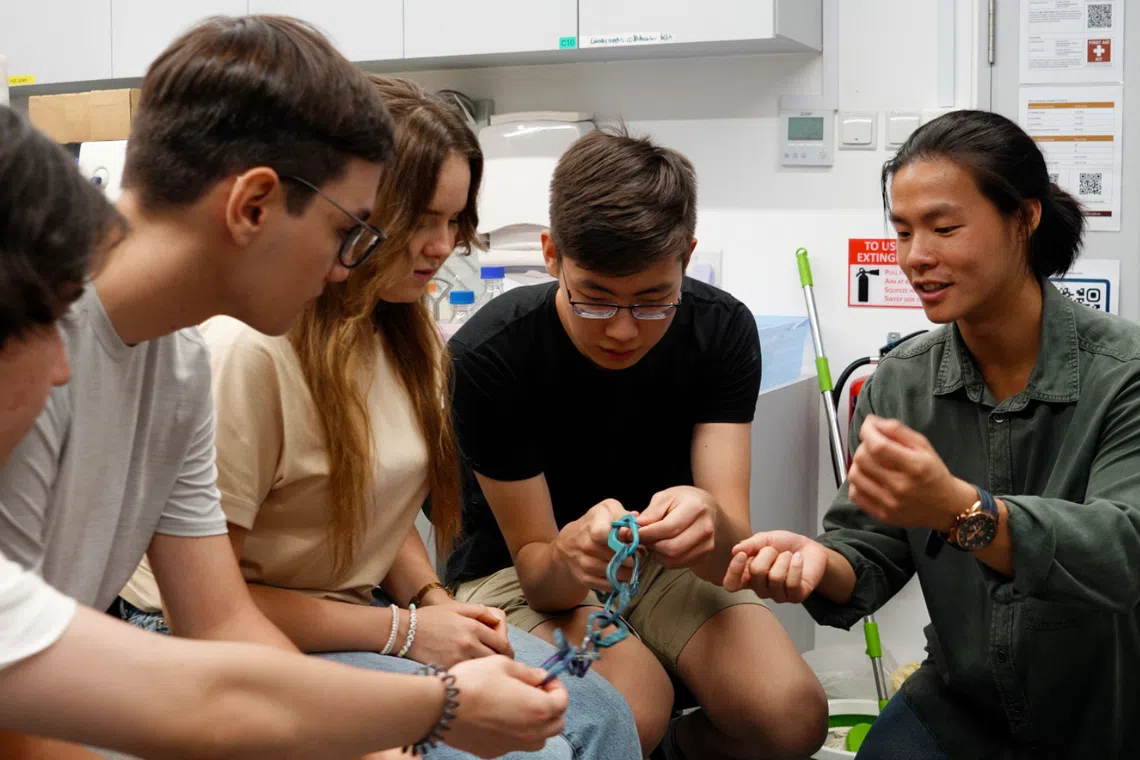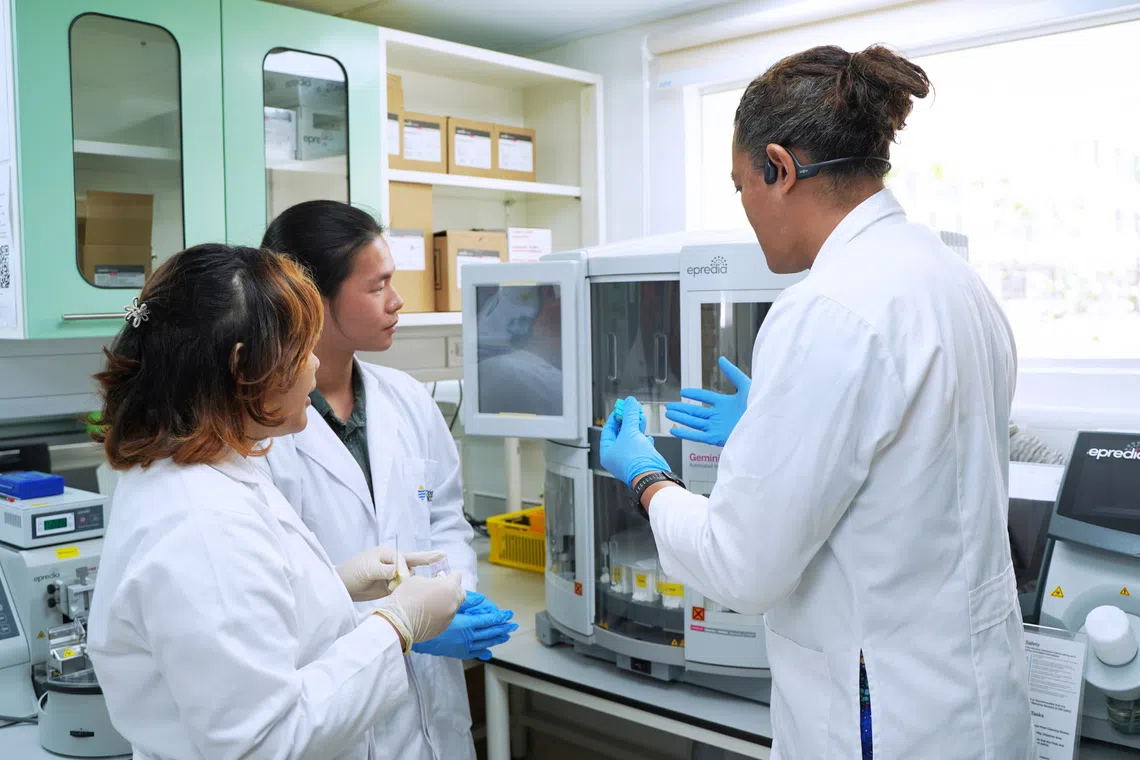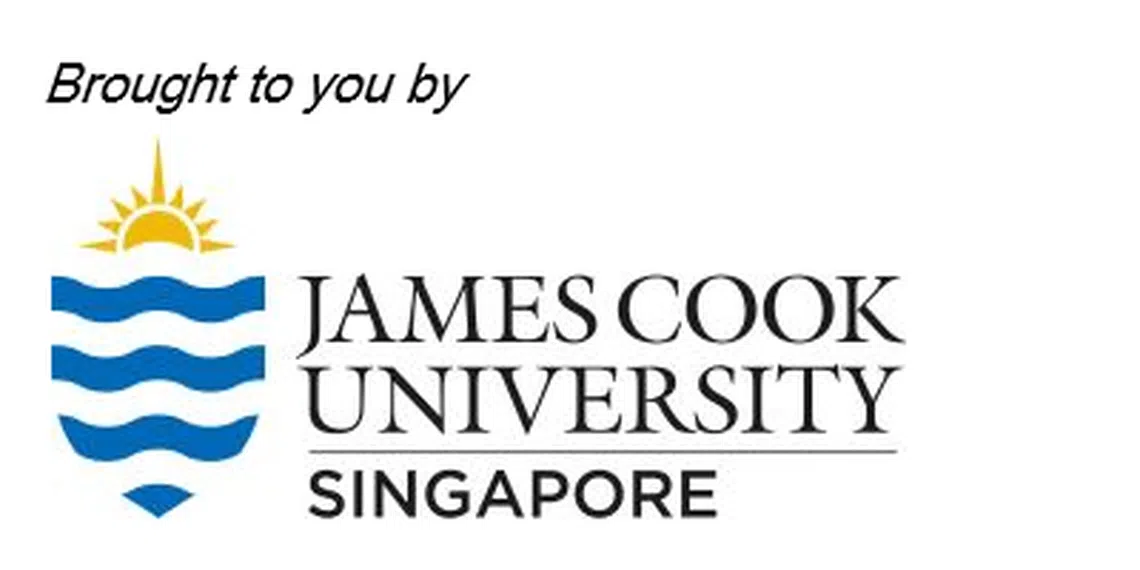BRANDED CONTENT
From understanding nature’s systems to green action: How aquaculture degree sparked his vision for sustainability
His James Cook University education armed him with more than skills – it showed him how science could be a catalyst for environmental change

Mr John Chua (pictured) gained valuable insights into how environmental systems interact and influence one another through the aquaculture programme at James Cook University.
PHOTO: JAMES COOK UNIVERSITY
Follow topic:
Through the gentle touch of soft rabbit fur, Mr John Chua saw the tough exterior of a troubled teen melt away. He remembers how the teen from a boys’ home flinched from the gentle creature, but by the end of the one-hour activity session, he was cradling the rabbit and calling it his “best friend”.
“Watching that transformation from fear to friendship unfold was incredible,” recalls Mr Chua, 25. “It showed me how much education and meaningful interaction can change perspectives.”
This transformative moment exemplifies Mr Chua’s understanding of how everything is connected – from human emotions to animal interactions to environmental awareness. His workshops, which blend sustainability education with hands-on animal activities, open doorways to deeper conversations about environmental responsibility and how one can play a part in protecting the natural world.
This holistic view of education and sustainability led him to pursue the Bachelor of Science (Majoring in Aquaculture Science and Technology) at the Singapore campus of James Cook University (JCU). Though he did not ultimately enter the aquaculture industry, the programme laid crucial groundwork for his current work in environmental education.
“What fascinated me the most about aquaculture was how it offers a multifaceted solution – not only does it enhance food security by supplementing wild fish stock, it also contributes to preserving endangered species through propagation. These aspects highlighted how science could make a tangible difference, which inspired me to pursue my degree,” he says.
Paving the path to environmental action
The multidisciplinary nature of JCU’s programme proved invaluable, offering Mr Chua insights into how different environmental systems interact and influence each other.
“The course showed me how aquaculture plays a critical role in addressing Singapore’s food security needs, but it also taught me much more – like how environmental sustainability intersects with community impact,” he shares.
The university’s approach to education aligned perfectly with Mr Chua’s belief in hands-on learning. “The university gave us the freedom and resources to turn ideas into reality,” says Mr Chua, who actively spearheaded sustainability projects on and off campus, putting into practice the interconnected principles he learned in his studies.
When he was the president of the Environmental Science and Aquaculture Society at JCU, Mr Chua led initiatives such as setting up a plastic recycling station that repurposed campus and neighbourhood waste into usable items like carabiners.

Mr Chua (right) explaining the plastic waste recycling process to students from Kazakhstan and Germany.
PHOTO: JAMES COOK UNIVERSITY
He also obtained approval from the relevant authorities to install cigarette collection bins around litter hotspots, with additional support from the environmental group The Good Earth School, where Mr Chua is also a volunteer. In an innovative twist, he experimented with growing oyster mushrooms on collected cigarette butts to test their viability for safe consumption.
“The projects gave me a chance to see how what we learnt in class could be applied in real life to solve problems creatively,” he says.
“Through these experiences, I developed essential skills like budget and manpower management and the ability to allocate resources effectively to meet project objectives. These skills were crucial when I had to organise and execute large-scale events and workshops.”
The dedicated faculty staff at JCU also helped his ideas take shape.
At JCU, Mr Chua started ReThink Good, a ground-up initiative, which comprises workshops to engage students on the importance of recycling and waste management, under the guidance of adjunct senior lecturer Dr Cynthia Wong.
“Dr Cynthia taught me how to tailor lessons to different age groups and even joined several sessions to help,” he says, adding that lecturers at JCU stressed the importance of engagement in education and student-centred learning.
The close-knit community at JCU played a significant role in Mr Chua’s journey. “Dr Cynthia wasn’t just a lecturer – she was a mentor who genuinely cared. She’d call me to discuss ideas and help troubleshoot problems that arose,” recalls Mr Chua.
Small class sizes and close interactions with lecturers also created an environment that he says “pushed me to go beyond what I thought was possible”.

The small class sizes at JCU allowed Mr Chua (second from left) to have closer interactions with lecturers, giving him better opportunities for learning.
PHOTO: JAMES COOK UNIVERSITY
Inspiring real-world impact
Despite the programme’s emphasis on research and lab work, Mr Chua shares that it is more than a degree for those interested in aquaculture. It is also relevant to those exploring opportunities beyond fish farming.
“It helps people to understand how sustainable aquaculture can alleviate poverty, create jobs and protect marine biodiversity,” he adds.
Mr Chua believes the programme’s focus on hands-on learning prepared him for his current role at a non-profit organisation and the workshops he continues to run.
The curriculum integrates diverse disciplines, from gene mapping and propagation techniques to environmental management and community engagement, ensuring graduates are well-rounded and industry-ready to contribute meaningfully to the growing sustainability sector.
Today, the series of animal-assisted workshops counts institutions of higher learning like Nanyang Technological University, Republic Polytechnic National and ITE College Central as partners, and have since engaged over 2,000 individuals. ReThink Good has reached out to over 4,500 individuals through more than 200 workshops and roadshows since mid-2023.
Reflecting on his journey, he hopes his work continues to contribute towards a culture of sustainability in Singapore – starting from a simple connection with an animal or the environment.
“I hope that we will see the interconnectedness of our actions and recognise the value of all life. Only by doing so can we create a more compassionate and sustainable world,” he says.
Find out more about the Bachelor of Science (Majoring in Aquaculture Science and Technology) programme


